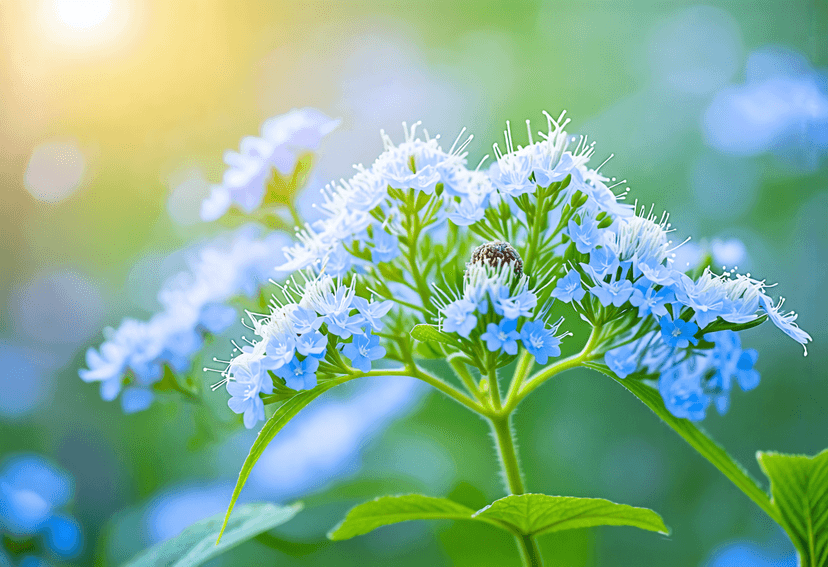
Unlocking the Mystery of Allergies: The Importance of Allergy Testing
11 Sep, 2023
 Healthtrip
Healthtrip1.Introduction
Allergies: they're a common but often enigmatic health concern affecting millions of people worldwide. From seasonal sneezing fits to life-threatening reactions, allergies manifest in various forms and degrees of severity. The key to understanding and managing allergies lies in allergy testing, a vital diagnostic tool. In this article, we'll delve into the world of allergies and explore the significance of allergy testing.
2.The Enigma of Allergies
Before delving into the importance of allergy testing, let's unravel the mystery of allergies themselves. Allergies occur when the immune system overreacts to typically harmless substances called allergens. Common allergens include pollen, dust mites, pet dander, certain foods, insect venom, and various medications. When exposed to these allergens, the immune system goes haywire, releasing chemicals like histamine, which trigger a cascade of symptoms.
Most popular procedures in India
3.Why Allergy Testing Matters
Understanding the value of allergy testing is crucial for individuals grappling with allergies. Here's why it matters:
3.1. Accurate Identification
Allergy testing provides precise insights into the specific allergens responsible for an individual's symptoms. This accuracy is vital for crafting effective treatment strategies. Without it, identifying the root cause of allergic reactions can be akin to searching for a needle in a haystack.
Wellness Treatments
Give yourself the time to relax
Lowest Prices Guaranteed!

Lowest Prices Guaranteed!
3.2. Tailored Treatment Plans
Once allergies are identified through testing, healthcare professionals can design personalized treatment plans. These plans may involve allergen avoidance, prescription medications, or allergen immunotherapy (such as allergy shots). Personalization is essential because allergies and their triggers vary widely among individuals.
3.3. Enhanced Quality of Life
Allergies can significantly impair an individual's daily life, leading to discomfort, missed work or school days, and reduced productivity. Allergy testing empowers individuals to regain control by identifying their allergen triggers and implementing strategies to minimize exposure.
4.Methods of Allergy Testing
Various methods are available for allergy testing, and the choice depends on factors like the suspected allergen and the patient's medical history. Here are some common approaches:
4.1 Skin Prick Testing (SPT)
Skin prick testing involves applying a minute amount of allergen extract to the skin and then pricking or scratching the skin's surface. If the individual is allergic to the substance, a small, raised bump or redness appears within 15-20 minutes.
4.2 Blood Tests
Blood tests, such as the Immune CAP test or RAST, measure the presence of specific antibodies (IgE) in response to allergens. These tests are especially useful when skin testing is impractical or to identify allergens like food, drugs, and insect venom.
4.3 Patch Testing
Patch testing is mainly used to identify contact dermatitis allergens found in cosmetics, fragrances, and metals. Small patches containing allergens are applied to the skin, typically on the back, and left for 48 hours before evaluation.
4.4 Elimination Diets
In some cases, healthcare providers recommend elimination diets to identify food allergies. This method involves removing potential allergenic foods from the diet and gradually reintroducing them while monitoring for allergic reactions.
5. Tips and Management Strategies for Allergies
Managing allergies effectively involves a combination of prevention, symptom relief, and lifestyle adjustments. Whether you're dealing with seasonal allergies, food allergies, or any other type, these tips and strategies can help you take control of your allergies and improve your quality of life.
5.1 Allergy Prevention
1. Identify Your Allergens
The first step in managing allergies is to determine your specific allergens through allergy testing. This knowledge will guide your avoidance efforts.
2. Allergen Avoidance
Once you know your allergens, take proactive steps to avoid them. For example, if you're allergic to pollen, check daily pollen counts and stay indoors when levels are high.
3. Reduce Indoor Allergens
To minimize indoor allergens like dust mites, mold, and pet dander:
- Use allergen-proof mattress and pillow covers.
- Wash bedding in hot water regularly.
- Maintain a clean and dry home environment.
- Vacuum with a HEPA filter regularly.
- Consider air purifiers with HEPA filters.
- Keep pets out of bedrooms or consider allergen-free breeds.
5.2 Symptom Relief
1. Over-the-Counter Medications
Consult with a healthcare provider or pharmacist to select appropriate over-the-counter medications for your specific symptoms. These may include antihistamines, decongestants, and nasal corticosteroids.
2. Prescription Medications
For severe or persistent symptoms, prescription medications such as stronger antihistamines or immunomodulators may be necessary. Consult an allergist for guidance.
3. Allergy Shots (Immunotherapy)
Allergy shots involve a series of injections containing small amounts of allergens. Over time, these shots can help desensitize your immune system to specific allergens, reducing allergic reactions.
6. Lifestyle Adjustments
6.1. Monitor Pollen Counts
Stay informed about pollen counts in your area. Numerous apps and websites provide daily pollen forecasts to help you plan outdoor activities.
6.2. Weatherproof Your Home
In the case of seasonal allergies, take steps to reduce outdoor allergens from entering your home. Use high-efficiency air filters and keep windows and doors closed during peak allergy seasons.
6.3. Dietary Management
If you have food allergies, carefully read food labels, ask about ingredients when dining out, and consider carrying an epinephrine auto-injector if your allergies are severe.
6.4. Emergency Plan
If you have severe allergies (anaphylaxis), develop an emergency action plan with your healthcare provider. This plan should include instructions for using epinephrine and when to seek immediate medical attention.
7. Allergy-Friendly Living
7.1. Allergy-Friendly Products
Explore allergy-friendly household products, including hypoallergenic cleaning supplies, detergents, and personal care items.
7.2. Allergy-Friendly Diet
Incorporate allergy-friendly recipes and alternatives into your diet if you have food allergies. Many allergy-friendly products are now widely available.
8.Consult an Allergist
8.1. Seek Expert Advice
If allergies are significantly impacting your life or if you're unsure about your allergies, consult an allergist. These specialists can provide comprehensive evaluations, allergy testing, and personalized treatment plans.
Allergies can be challenging, but with the right strategies, you can manage them effectively. Start by identifying your allergens, taking preventative measures, and seeking appropriate medical advice when needed. By combining these tips and management strategies, you can lead a more comfortable and symptom-free life, even in the face of allergies. Remember that managing allergies is an ongoing process, so stay informed and adapt your approach as needed to stay one step ahead of allergens.
Related Blogs

Discover the Future of Healthcare at Yashoda Hospitals Hitec City
Experience world-class medical care at Yashoda Hospitals Hitec City, a

The Link Between Allergies and ENT Issues
Understand how allergies affect your ENT health

Best Hospitals for Bariatric Surgery in UAE
Thinking about bariatric surgery in the UAE to reclaim your

Minimally Invasive Surgery Options in Thailand
Are you considering Hormone Replacement Therapy (HRT) and wondering about

A Comprehensive Cardiac Care at Fortis Memorial Research Institute (FMRI) Gurgaon, India
Ensuring your heart receives the best care is vital, but

Glaucoma: Causes, Symptoms, and Treatment Options
Ever had that feeling when you rub your eyes and










